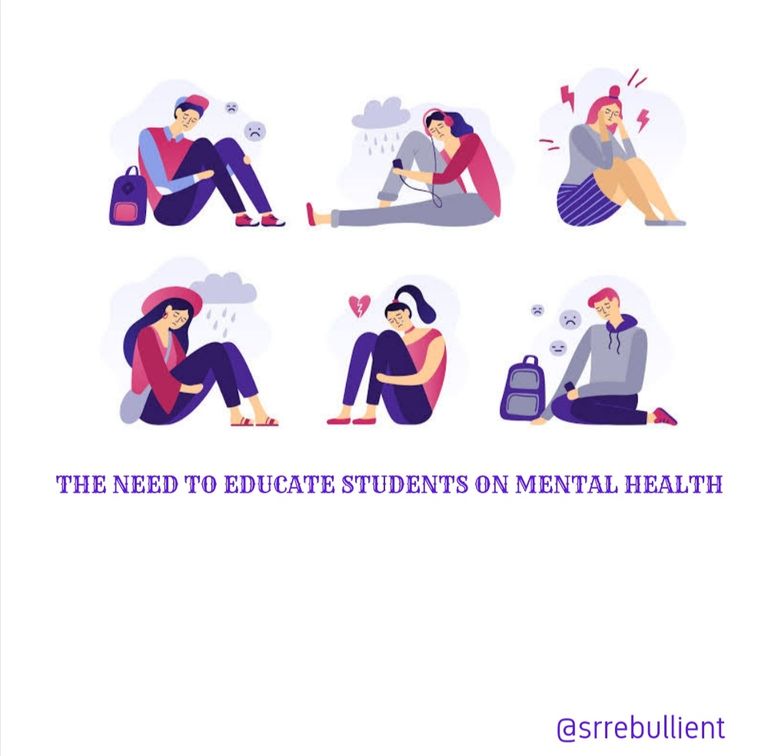
According to recent studies, one out of every five young adults in Nigeria suffers from mental illness, however many do not seek treatment. They are burdened by increased obligations, and their worry might lead to school confrontations.
Some of the challenges Nigeria students face includes;
Anxiety
Depression
Suicide thoughts
Addiction
These circumstances can exacerbate everyday stress to the point where daily life becomes unpleasant. College may be an extremely stressful environment. Most students are making their first move away from home and learning how to form new friendships. There's homework, studying, and socializing with classmates.
It's critical that we increase awareness about the impact mental health issues can have on college students at this pivotal and often sensitive time in their life. What are the telltale signals that someone is having trouble?

- ANXIETY
Young adults' anxiety levels commonly rise when they make the transition to college. Those emotions of discomfort don't go away for many people, and they stay high throughout the second semester.
According to research, over 60 percent of Nigeria college students reported experiencing severe anxiety. The first year of college is thought to be a high-risk period for anxiety development or worsening. Anxiety levels in young adults are on the rise, according to a recent study, with more agitated and nervous students than ever before.
- DEPRESSION
College is a life-changing experience for many people, and it can cause grief, exhaustion, and melancholy. It could be a sign of mental illness if you feel this way for a long time.
Depression, the world's greatest cause of disability, isn't something you can simply shake off. It's critical that we all try to spot the warning signs and help people who are in need.
- SUICIDE THOUGHTS
Suicide is the tenth most prevalent cause of death in the Nigeria, with an underlying mental disease present in nearly 90% of those who commit suicide.
College may be a stressful setting. Both professionally and socially, students want to establish their place in the world. Suicide may appear to be a sensible answer to the stress caused by mental illness. According to one survey, more than 20% of students stated they had considered suicide and that some had attempted it.
- ADDICTION
In the Nigeria, over 10.2 million people suffer from both mental health and addiction problems. With a newfound sense of independence, college students are no strangers to substance misuse. According to research, teenage drinkers binge drink over 90% of their alcohol, which is a very harmful but common practice among college students.
Mental health issues and substance misuse issues are frequently linked. Many people suffering from anxiety, despair, and other mental health issues turn to alcohol or drugs to mask their discomfort. Self-medication may momentarily alleviate symptoms, but it's all too simple to develop a tolerance and then a habit.
With the ubiquity and accessibility of alcohol and drugs on college campuses, it's critical that we discuss the tremendous risk these circumstances pose to those who are already struggling inwardly. Keep an eye out for changes in your friends' or family members' behavior because the indicators of addiction are sometimes similar to those of despair.
Thanks for reading...
See you next time..
